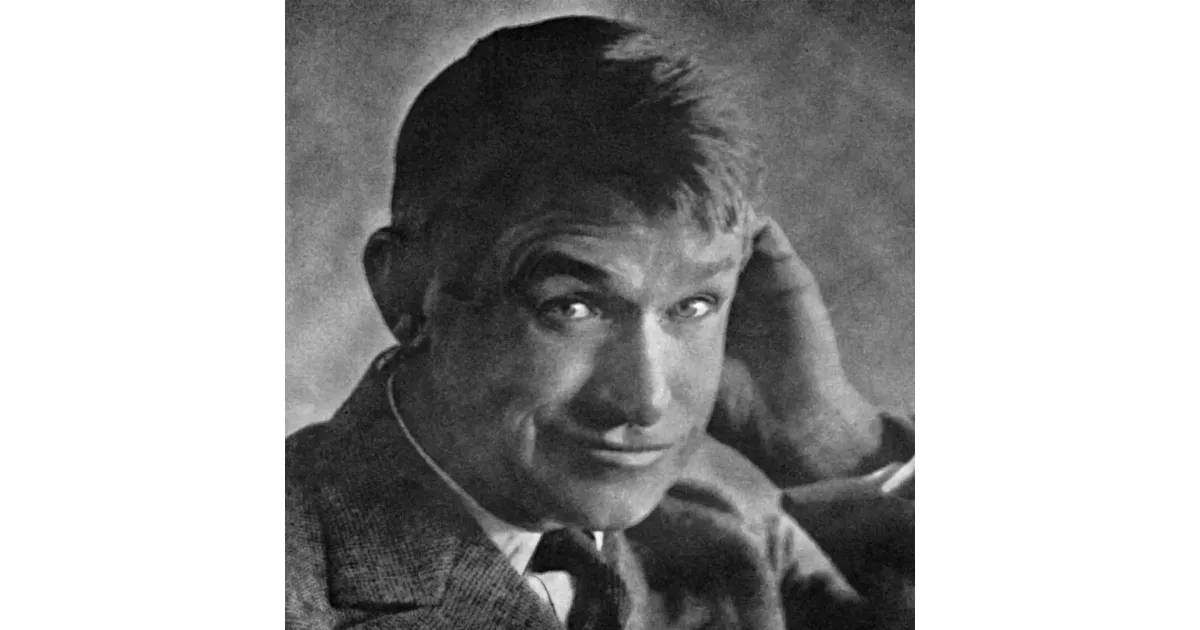Will Rogers, born a citizen of the Cherokee Nation, was a celebrated American vaudeville performer, actor, and humorous social commentator, often called "Oklahoma's Favorite Son." He achieved immense popularity and became the highest-paid Hollywood film star by the mid-1930s. Rogers traveled the world extensively, starred in 71 films, and penned over 4,000 nationally syndicated newspaper columns, establishing himself as a leading political wit. His life tragically ended in 1935 in a plane crash in Alaska alongside aviator Wiley Post.
1901: Departure for Argentina
Near the end of 1901, at the age of 22, Will Rogers and a friend, Dick Parris, left home with the intention of working as gauchos in Argentina.
May 1902: Arrival in Argentina
In May 1902, Will Rogers and his friend arrived in Argentina, where they spent five months attempting to establish themselves as ranch owners in the Pampas.
1904: Return to the United States
In 1904, Will Rogers returned to the United States after working in Australia and appeared at the Saint Louis World's Fair. He then started showcasing his roping skills on the vaudeville circuits.
April 27, 1905: Roping a Steer at Madison Square Garden
On April 27, 1905, Will Rogers was at Madison Square Garden when a wild steer escaped into the stands. He successfully roped the steer, gaining front-page attention and a contract with Willie Hammerstein to perform on the Victoria Roof.
1908: Marriage to Betty Blake
In 1908, Will Rogers married Betty Blake, and they had four children together.
1911: Delayed Reconciliation with Father
Clement's death in 1911 precluded a full reconciliation between him and Will. This occurred after Will had achieved acclaim in vaudeville.
1911: Purchase of Ranch in Claremore, Oklahoma
In 1911, Will Rogers purchased a 20-acre ranch near Claremore, Oklahoma, for $500 an acre, planning to use it as his retirement home.
1911: Purchase of Land for Retirement Home
In 1911, Will Rogers purchased the site in Claremore for his future retirement home, which later became the Will Rogers Memorial Museum.
1911: Death of Clement V. Rogers
In 1911, Will Rogers' father, Clement V. Rogers, passed away. Rogers County, Oklahoma, is named in honor of him.
1915: Acting and Literary Career Begins
From 1915, Will Rogers gained a national audience through acting and literary endeavors, expressing the views of the "common man."
1915: Appearance in Ziegfeld's Midnight Frolic
In the fall of 1915, Will Rogers began performing in Florenz Ziegfeld's Midnight Frolic, where he refined his act and started delivering monologues based on current news, famously opening with the line "All I know is what I read in the papers."
1916: Featured Star in Ziegfeld's Follies
By 1916, Will Rogers became a featured star in Ziegfeld's Follies on Broadway. Rogers evolved from a "Ropin' Fool" to a "Talkin' Fool", incorporating political satire and witty commentary on current events into his performances, demonstrating his remarkable skill for improvisation.
1916: Appearances in the Ziegfeld Follies
In 1916, Will Rogers appeared in the Ziegfeld Follies and continued until 1925.
1918: First Silent Movie
In 1918, Rogers branched into silent films and made his first silent movie, "Laughing Bill Hyde", filmed in Fort Lee, New Jersey for Samuel Goldwyn's company Goldwyn Pictures.
1918: Hollywood Discovery
In 1918, Samuel Goldwyn gave Will Rogers the title role in "Laughing Bill Hyde", marking his discovery by Hollywood.
1922: Weekly Column 'Slipping the Lariat Over'
At the end of 1922, Will Rogers began writing a weekly column titled "Slipping the Lariat Over". He also published a book of wisecracks and continued publishing humor books.
1922: Syndication of Newspaper Column
From 1922 to 1935, The New York Times syndicated Will Rogers's weekly newspaper column.
1922: Editorial in The New York Times
In 1922, The New York Times published an editorial comparing Will Rogers in the Follies to Aristophanes, recognizing his tradition of political satire.
1922: Newspaper Column Begins
In 1922, Will Rogers began writing his newspaper column, which ran until 1935, expressing traditional morality and downplaying the seriousness of political problems.
1923: One-Year Stint with Hal Roach
In 1923, Will Rogers began a one-year stint with Hal Roach and made 12 pictures.
1924: Films for Hal Roach
In 1924, Will Rogers made three films for Hal Roach directed by Rob Wagner: Two Wagons Both Covered, Going to Congress, and Our Congressman.
1924: Support for Coolidge
In 1924, Will Rogers, a lifelong Democrat, supported Republican Calvin Coolidge over John W. Davis in the presidential election.
1925: Lecture Tour Begins
Around 1925, Will Rogers began a "lecture tour" across the United States, becoming the first civilian to fly from coast to coast with pilots flying the mail. The National Press Club dubbed him "Ambassador at Large of the United States".
1925: Appearances in the Ziegfeld Follies
In 1925, Will Rogers appeared in the Ziegfeld Follies and had been appearing since 1916.
1926: Witnessed European Aviation Advancements
During his 1926 European trip, Will Rogers witnessed the European advances in commercial air service and compared them to the almost nonexistent facilities in the United States.
1926: European Tour Financed by The Saturday Evening Post
In 1926, The Saturday Evening Post financed a European tour for Will Rogers in return for publication of his articles. Rogers visited numerous European capitals, met with international figures and common people, and reflected a fear that Europeans would go to war again, recommending isolationism for the United States.
1926: Daily Newspaper Column
In 1926, Will Rogers's short column "Will Rogers Says" became a daily feature, reaching 40 million newspaper readers.
1927: Silent Films and Travelogue Series
In 1927, Will Rogers made two feature silent films and a travelogue series, after which he did not return to the screen until 1929.
1928: Criticism and Support at the Republican Convention
During the 1928 Republican Convention, Will Rogers criticized the party platform, but welcomed the nomination of Charles Curtis as Vice President, though expressing that the leadership kept Curtis from the presidency.
1928: End of Lecture Tour
From about 1925 to 1928, Will Rogers toured the length and breadth of the United States in a "lecture tour".
1928: Mock Presidential Campaign
In 1928, Will Rogers mounted a mock campaign for the presidency to prove that all campaigning was "bunk." He ran as the "bunkless candidate" of the Anti-Bunk Party in Life magazine, promising to resign if elected and caricaturing campaign politics weekly from Memorial Day through Election Day.
1929: Radio Broadcasts for Gulf Oil Company
From 1929 to 1935, Will Rogers made radio broadcasts for the Gulf Oil Company. His weekly Sunday evening show, "The Gulf Headliners", became one of the top radio programs in the country.
1929: Return to the Screen with 'Talkies'
In 1929, Will Rogers returned to the screen with the advent of 'talkies'.
1929: First Sound Film
In 1929, Will Rogers starred in his first sound film, "They Had to See Paris", which allowed him to showcase his verbal wit and solidified his status as a top star in the medium.
1931: Travels to Asia
In 1931, Will Rogers traveled to Asia to perform.
1932: Support for Franklin D. Roosevelt
In 1932, Will Rogers supported Democrat Franklin D. Roosevelt, who he considered his favorite president and politician. He also made jokes about Roosevelt's New Deal.
1933: Roles in 'State Fair' and 'Dr. Bull'
In 1933, Will Rogers played the role of a homespun farmer in 'State Fair' and an old-fashioned doctor in 'Dr. Bull'.
1934: Films with Stepin Fetchit
In 1934, Will Rogers appeared in the films 'David Harum' and 'Judge Priest' alongside Stepin Fetchit.
1934: Globe-Girdling Tour
In 1934, Will Rogers made a globe-girdling tour and returned to play the lead in Eugene O'Neill's stage play Ah, Wilderness!.
1934: Roles in 'David Harum' and 'Judge Priest'
In 1934, Will Rogers played a small-town banker in 'David Harum' and a rustic politician in 'Judge Priest'.
August 15, 1935: Death of Will Rogers
On August 15, 1935, Will Rogers died in a plane crash in northern Alaska along with aviator Wiley Post. Rogers was a popular entertainer and humorist known for his political wit.
August 21, 1935: Burial in Glendale, California
Will Rogers was temporarily interred on August 21, 1935, in Forest Lawn Memorial Park in Glendale, California after his death.
1935: "Will Rogers and his Famous Alarm Clock"
By 1935, Will Rogers's radio show was being announced as "Will Rogers and his Famous Alarm Clock". He used an alarm clock to keep track of time during his broadcasts for the Gulf Oil Company.
1935: Column for the McNaught Syndicate
From 1922 to 1935, Will Rogers wrote columns for the McNaught Syndicate, winning the admiration of the American people through his witty commentary on current events and prominent figures.
1935: Roles in 'County Chairman', 'Steamboat Round the Bend', and 'In Old Kentucky'
In 1935, Will Rogers appeared in 'County Chairman', 'Steamboat Round the Bend', and 'In Old Kentucky'.
1935: Films with Stepin Fetchit
In 1935, Will Rogers appeared in the films 'Steamboat Round the Bend' and 'The County Chairman' alongside Stepin Fetchit.
1935: Declined Role in Movie Version of 'Ah, Wilderness!'
In 1935, Will Rogers tentatively agreed to star in the movie version of "Ah, Wilderness!", but declined due to concerns about a fan's reaction. He and Wiley Post then made plans to fly to Alaska that summer.
1935: Post-Rogers Flight
In 1935, a small monument at the Renton airport commemorates the starting point of the fatal Post-Rogers flight.
1935: Syndication of Newspaper Column
The New York Times syndicated Will Rogers' weekly newspaper column from 1922 to 1935.
1935: Expressing Views of the Common Man Continues
Until 1935, Will Rogers continued to express the views of the "common man" in his acting and literary career, emphasizing individualism and hard work.
1935: Newspaper Column Ends
Will Rogers' newspaper column, which began in 1922, ended in 1935. In his column, he expressed his traditional morality and his belief that political problems were not as serious as they sounded.
1936: Portrayal in The Great Ziegfeld
In 1936, Will Rogers was portrayed by A.A. Trimble in a cameo in the film "The Great Ziegfeld".
1936: Hospital Renamed in Honor
In 1936, the NVA Hospital in Saranac Lake, New York, was renamed the Will Rogers Memorial Hospital by the National Vaudeville Artists association.
1936: Will Rogers Memorial Center Built
The Will Rogers Memorial Center was built in Fort Worth, Texas, in 1936.
June 6, 1939: Dedication of Statue in the Capitol
On June 6, 1939, a bronze statue of Will Rogers, sculpted by Jo Davidson, was dedicated in the Capitol before a crowd of over 2,000 people.
May 19, 1944: Body Moved to Claremore
On May 19, 1944, Will Rogers's body was moved from Glendale, California, to the Will Rogers Memorial Museum in Claremore, Oklahoma.
1944: Will Rogers State Historic Park Established
From 1944, Will Rogers's California home, stables, and polo fields were preserved for public enjoyment as Will Rogers State Historic Park in Pacific Palisades, after his widow Betty willed the property to the state of California, stipulating that polo be played on the field every year.
1944: Re-interment in Claremore, Oklahoma
In 1944, Will Rogers was re-interred at the Will Rogers Memorial in Claremore, Oklahoma.
1944: Death of Betty Blake
Will Rogers's wife, Betty Blake, passed away in 1944.
1947: College Football Bowl Game Named in His Honor
In 1947, a college football bowl game was named in Will Rogers's honor, but the event folded after the first year.
November 4, 1948: Commemorative Postage Stamp Issued
On November 4, 1948, the United States Post Office commemorated Will Rogers with a three-cent postage stamp.
1949: Portrayal in Look for the Silver Lining
In 1949, Will Rogers was portrayed by his son, Will Rogers Jr., in a cameo in the film "Look for the Silver Lining".
February 16, 1950: Dedication of Riding into the Sunset at Texas Tech
On February 16, 1950, a casting of "Riding into the Sunset" was dedicated at the entrance to the main campus quad at Texas Tech University in Lubbock, Texas, by Rogers' friend, Amon G. Carter.
1952: Portrayal in The Story of Will Rogers
In 1952, Will Rogers was portrayed by his son, Will Rogers Jr., as the star of the film "The Story of Will Rogers".
1962: Will Rogers Day Observance Begins
In 1962, the town of Higgins, Texas, began an annual observance of Will Rogers Day, in honor of Rogers and his friendship with Frank Ewing.
1966: Launch of USS Will Rogers Submarine
In 1966, the USS Will Rogers (SSBN-659), the final ship of the Benjamin Franklin-class submarines, was launched.
1970: First Run of Will Rogers' USA
In 1970, James Whitmore performed the first of eight runs of the one-man play "Will Rogers' USA".
1971: Argument on Accident Cause
In a 1971 article, Bobby H. Johnson and R. Stanley Mohler argued that Post used floats designed for a larger plane, contributing to the accident.
1972: Television Film of Will Rogers' USA
In 1972, James Whitmore portrayed Will Rogers in a television film of "Will Rogers' USA".
1974: Broadway Run of Will Rogers' USA
In 1974, James Whitmore performed a limited run of the one-man play "Will Rogers' USA" on Broadway.
1976: Rogers as Anchor of Stability
According to scholar Peter Rollins in 1976, Will Rogers was seen as an anchor of stability during the Roaring Twenties, reminding people of the recent past with his traditional values.
1976: Depiction in Artwork for Bell System
In 1976, Will Rogers was among the historical figures depicted in Stanley Meltzoff's artwork, "Our Nation's 200th Birthday, The Telephone's 100th Birthday," for Bell System.
1976: Criticism of Rogers' Philosophy
In 1976, film critic David Thomson described Will Rogers' philosophy as reactionary, dispiriting, and provincial in "A Biographical History of Film".
1979: Rogers as Iconic American Values
In 1979, Brown argued that Rogers held up a "magic mirror" reflecting iconic American values as the archetypical "American Democrat", "American Adam", and "American Prometheus".
1979: Performing Arts Stamp Issued
In 1979, the United States Postal Service issued a 15-cent stamp of Will Rogers as part of the "Performing Arts" series.
1980: Sociological-Psychological Assessment of Will's Relationship with His Father
In 1980, a sociological-psychological assessment by Roach was published, examining the relationship between Will Rogers and his father during Will's boyhood and teenage years, focusing on their differing expectations and personality clash.
1991: Broadway Production of The Will Rogers Follies
In 1991, "The Will Rogers Follies", a Tony Award-winning musical, was produced on Broadway, starring Keith Carradine in the lead role.
1994: Portrayal in Mrs. Parker and the Vicious Circle
In 1994, Keith Carradine also played Will Rogers in the film "Mrs. Parker and the Vicious Circle".
2000: Last Run of Will Rogers' USA
In 2000, James Whitmore performed the last of eight runs of the one-man play "Will Rogers' USA".
2001: Alternative Cause for Accident
Bryan and Frances Sterling maintain in their 2001 book that their research showed the floats were the correct type for the aircraft, suggesting another cause for the crash in Alaska.
November 4, 2019: Google Doodle for 140th Birthday
On November 4, 2019, Google celebrated Will Rogers's 140th birthday with a Google Doodle.
January 8, 2025: Destruction of House and Stables
On January 8, 2025, the house and stables at Will Rogers State Historic Park burnt down during the Palisades Fire.
Mentioned in this timeline

Google LLC is a multinational technology corporation specializing in a...
California is a U S state on the Pacific Coast...

College football is a popular amateur sport in the United...

News encompasses information about current events disseminated through various media...

Football is a family of team sports primarily involving kicking...

Seattle is the most populous city in Washington state and...
Trending

20 minutes ago Anhelina Kalinina Runner-Up at Antalya WTA 125, WTA Megarasay Hotels Open 2

3 hours ago Marcus Smart shines with defensive prowess, racking up steals in Lakers' victory.

3 hours ago DeMar DeRozan Trade Rumors: Kings, Hawks Potential Suitors; NBA Picks Targeted

3 hours ago Devin Booker returns from injury as Haywood Highsmith debuts for Suns.

3 hours ago Maxime Raynaud Shines Despite Loss; Praised for Rookie Potential and Shooting.

3 hours ago Rui Hachimura's demand for Lakers' focus surfaces after victories over Warriors and Kings.
Popular

Hillary Diane Rodham Clinton is a prominent American politician lawyer...

Ken Paxton is an American politician and lawyer serving as...

Jesse Jackson is an American civil rights activist politician and...

Jim Carrey is a Canadian-American actor and comedian celebrated for...

Bill Clinton served as the nd U S President from...

XXXTentacion born Jahseh Dwayne Ricardo Onfroy was a controversial yet...

